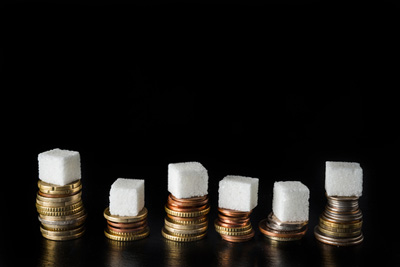TaxPayers’ Alliance calls for government to abandon the sugar tax
- Like
- Digg
- Del
- Tumblr
- VKontakte
- Buffer
- Love This
- Odnoklassniki
- Meneame
- Blogger
- Amazon
- Yahoo Mail
- Gmail
- AOL
- Newsvine
- HackerNews
- Evernote
- MySpace
- Mail.ru
- Viadeo
- Line
- Comments
- Yummly
- SMS
- Viber
- Telegram
- Subscribe
- Skype
- Facebook Messenger
- Kakao
- LiveJournal
- Yammer
- Edgar
- Fintel
- Mix
- Instapaper
- Copy Link
Posted: 1 June 2016 | Victoria White, Digital Content Producer | No comments yet
The TPA says that new research reveals the sugar tax is entirely arbitrary and has little to do with the sugar content of the products it affects…


The TaxPayers’ Alliance (TPA) is calling for the UK Government to abandon its proposed sugar tax, saying that new research reveals the tax is entirely arbitrary and has little to do with the sugar content of the products it affects.


The TPA carried out a comparison of 49 drinks in three different groups – regular fizzy drinks as well as sports and energy drinks; milk-based products; and coffees. The first group will be taxed while the second and third groups would not.
The TPA’s research found that none of the 10 most sugary products (grams/litre) analysed will be subject to the sugar tax. Coca-Cola (10.6 grams of sugar per 100 millilitres), for example, will be subjected to the sugar tax but a Starbucks’ Signature Hot Chocolate with Whipped Cream with Coconut milk (11 grams of sugar per 100 millilitres) will not. Energy drinks such as Monster Ori.gin (11g/100ml) will be taxed, but Tesco Chocolate Flavoured Milk (12.4g/100ml) will not
The TPA says that added to the mounting evidence that this tax will merely increase the cost of living, the Government should abandon the sugar tax immediately.
“Irresponsible meddling”
Jonathan Isaby, Chief Executive of the TaxPayers’ Alliance, commented: “It is deeply concerning that the Government has given in to the pressures from the public health lobby and is pushing ahead with this regressive tax which will hit the poorest families hardest. The evidence shows that the Sugar Tax has nothing to do with the sugar content of products, so it is farcical to suggest that this will have any positive impact on people’s diet or lifestyle choices.
“This is yet another example of irresponsible meddling from the High Priests of the Nanny State, introducing entirely unnecessary complications into an already complicated tax system and pushing up the cost of everyday products for hard-pressed families.”




